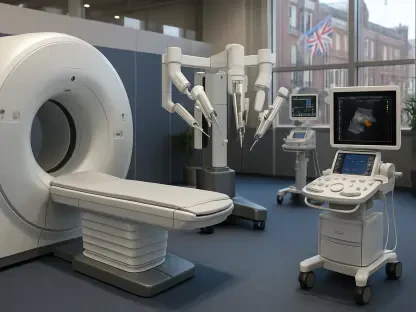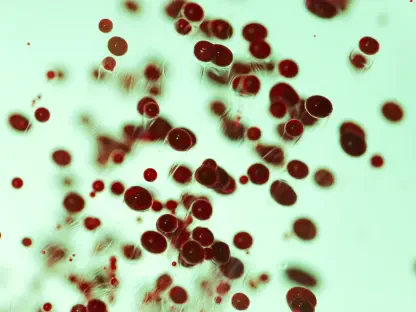In the heart of western Wisconsin, particularly around Chippewa Falls and Eau Claire, a dire health care crisis has unfolded, leaving residents grappling with the fallout of multiple hospital closures and limited access to critical medical services. Sacred Heart Hospital in Eau Claire and St. Joseph’s Hospital in Chippewa Falls shuttered their doors in 2023 due to financial difficulties, followed by the closure of several Prevea Health locations in the region. This has created a health care desert, where access to emergency rooms and critical treatments like cancer care is severely limited. Patients often face long travel distances and extended wait times, while many must be transferred out of the area for specialized care. Amid this alarming situation, a glimmer of hope emerges through a community-driven initiative. The Chippewa Valley Health Cooperative, a nonprofit formed by local medical professionals, residents, and business leaders, aims to tackle these challenges head-on, raising the question of whether such a model can truly address the region’s pressing needs.
A Grassroots Response to a Growing Crisis
The formation of the Chippewa Valley Health Cooperative represents a bold, community-led effort to reclaim access to essential medical services in western Wisconsin. This nonprofit organization operates on a cooperative model, where staff, patients, and local residents collectively own and manage the entity, ensuring that decisions reflect the community’s priorities. A board of directors, predominantly composed of members, provides a direct voice in shaping the cooperative’s direction. Unlike traditional health care systems driven by profit, this model reinvests resources back into the region, focusing on affordable and accessible care. The initiative emerged as a direct response to the void left by hospital closures, with the goal of restoring vital services that have been absent for too long. By prioritizing local needs over financial gain, the cooperative seeks to rebuild trust in a system that has failed many residents, offering a potential blueprint for other underserved areas facing similar struggles.
However, the path forward is not without significant hurdles that could impact the cooperative’s success. Financial stability remains a pressing concern, as sustaining operations and expanding services require substantial funding in an already strained economic environment. Navigating the complex regulatory landscape of health care also poses challenges, with licensing and compliance issues potentially delaying progress. Despite these obstacles, the cooperative has garnered widespread support from the community and medical professionals alike, reflecting a shared determination to overcome barriers. The model’s emphasis on collective ownership may help mitigate some risks by fostering accountability and transparency, but the road ahead demands careful planning and resource management. As this initiative unfolds, it serves as a critical test of whether community-driven solutions can effectively address systemic failures in rural health care, providing valuable lessons for broader application.
Reviving Local Care Through Strategic Initiatives
One of the cooperative’s most immediate and tangible efforts is the acquisition and planned reopening of the vacant St. Joseph’s Hospital in Chippewa Falls, which has been closed since early 2024. Through dedicated fundraising campaigns, the organization aims to relaunch the facility this fall as the Chippewa Valley Cooperative Hospital. Initially, services will be limited to key areas such as medical oncology, infusion, advanced wound care, and select specialty treatments, addressing some of the community’s most urgent needs. Looking ahead, plans are in place to expand to a full range of services by summer 2026, including an intensive care unit, emergency department, surgical facilities, labor and delivery, and comprehensive diagnostic capabilities. This phased approach allows time to secure necessary certifications while delivering incremental relief to residents. With over 90 physicians across 40 specialties committed to providing care, the project has already secured robust professional backing.
Beyond the temporary revival of an existing structure, the cooperative recognizes the limitations of aging infrastructure and has set its sights on a more sustainable solution. A new, state-of-the-art hospital is planned for construction in Lake Hallie, with groundbreaking scheduled for spring 2026. Estimated to cost $150 million, the project relies on raising $55 million through philanthropic contributions, which are tax-deductible due to the nonprofit status. This modern facility is designed to meet current standards and adapt to future community needs, offering a long-term answer to the region’s health care access issues. The initiative reflects a forward-thinking strategy that balances immediate action with visionary planning, ensuring that residents are not left vulnerable in the interim. As fundraising continues, the project underscores the power of collective effort in overcoming the challenges of a health care desert, setting a precedent for innovative problem-solving in rural settings.
Community Resolve and Broader Implications
The driving force behind the Chippewa Valley Health Cooperative is the unwavering resolve of a community determined to reclaim control over its health care destiny. Medical professionals like Dr. Erik Dickson, who once served at St. Joseph’s Hospital, have expressed profound personal and professional commitment to this cause, highlighting the emotional toll of the closures and the significance of restoring local services. Similarly, cooperative leaders and advisers emphasize the dedication of residents and physicians in tackling this crisis head-on. This shared sense of purpose has fostered a united front, bridging diverse perspectives to focus on a common goal. The emotional and practical stakes are high, as the absence of nearby emergency and specialty care has profoundly affected daily life, making the cooperative’s mission not just a logistical endeavor but a deeply human one.
Looking at the bigger picture, the efforts in western Wisconsin reflect a growing trend of communities seeking localized, innovative solutions to systemic health care challenges, particularly in rural and underserved regions. The cooperative model offers a promising alternative to traditional systems, prioritizing community ownership and reinvestment over profit-driven motives. While financial and regulatory obstacles remain, the strong backing from both locals and professionals suggests a viable path forward. This initiative could inspire similar efforts elsewhere, demonstrating that grassroots movements can address disparities when larger systems falter. The story of this region’s response serves as a powerful reminder of the resilience embedded in community collaboration, potentially reshaping how health care crises are approached on a national scale.
Reflecting on a Path to Recovery
Looking back, the journey of the Chippewa Valley Health Cooperative stands as a testament to what a united community can achieve in the face of adversity. The closures of vital hospitals had left a profound void, but the determination to rebuild through a cooperative model marked a significant turning point. As the reopening of St. Joseph’s Hospital takes shape and plans for a new facility in Lake Hallie progress, tangible steps toward recovery become evident. Moving forward, sustaining momentum through continued fundraising and strategic partnerships will be crucial. Engaging state and federal support to ease regulatory burdens could further strengthen the initiative. For other regions facing similar crises, this effort highlights the potential of community-driven models as a viable solution, urging stakeholders to consider cooperative frameworks as a means to restore access and equity in health care. The path ahead remains challenging, but the groundwork laid offers a hopeful foundation for lasting change.









